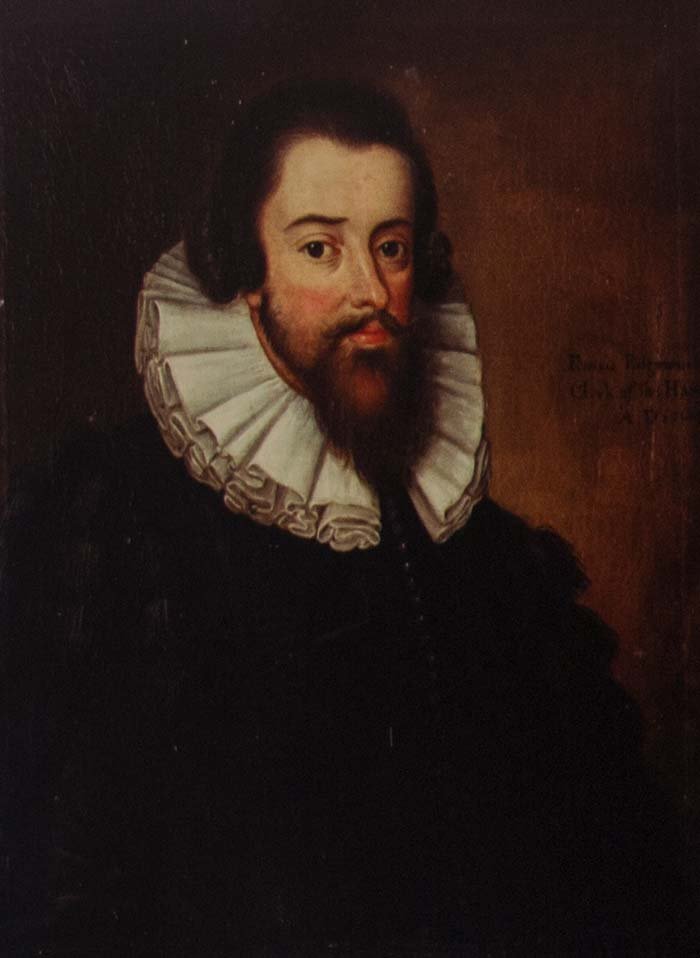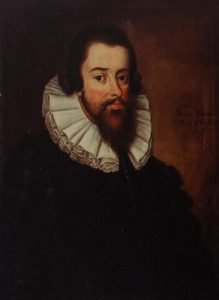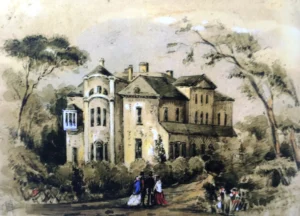The Edgeworth family’s journey in Ireland began in 1585, when brothers Edward and Francis Edgeworth left their native Middlesex, possibly from the market town of Edgeworth or Edgeware near London. These two figures would establish a lasting legacy and set the stage for the Edgeworth name in Irish history.

Edward Edgeworth, the elder of the two, had a distinguished career within the Anglican Church. Prior to moving to Ireland, he served as Vicar of East Kirkby and held multiple benefices in England. With strong endorsements from the Archbishop of Canterbury and his former patron, the Earl of Leicester, Edward arrived in Dublin as a respected clergyman. In 1586, he was appointed a Prebendary of St Michan’s at St Patrick’s Cathedral, Dublin, and shortly thereafter, received the prebend of Tipperkevin at Christ Church Cathedral. He continued his ecclesiastical rise, becoming Vicar of Carrickfergus in 1590 and, ultimately, the Bishop of Down and Connor in 1593. His time as bishop was short-lived, however, as he passed away in 1595, leaving behind a legacy of devotion and leadership.
Francis Edgeworth, believed to have arrived in Ireland alongside his brother in the late 16th century, embarked on a successful legal career in Dublin. He quickly established himself in the legal profession, eventually serving as Clerk of the First Fruits in the Exchequer. By 1606, he held the office of Clerk of the Crown and Hanaper, a position he shared with his son-in-law, John King.
In recognition of his service, King James I granted Francis a significant landholding of 600 acres, originally confiscated from the O’Farrell family. This land would later become known as Edgeworthstown, marking the beginning of the family’s association with the area.

Francis married three times over the course of his life. His first wife likely passed away before his departure from England. His second wife, an Irishwoman from the prominent O’Cavanagh family, bore him no children. His third wife, Jane Tuite, was the daughter of Sir John Tuite of Sonnagh in Westmeath. Jane was an influential figure who converted from Catholicism to the Church of England upon marriage but later returned to her Catholic faith with fervour.
Jane was an ambitious and strong-willed woman. In 1621, during a visit to England, she secured a promise of a baronetcy for Francis through a friend at court. However, when Francis declined to apply for the title, citing the prohibitive cost of the patent, Jane’s frustration led her to obtain the title for her half-brother, Oliver Tuite.

After feeling humiliated by being outranked by the wife of a newly created baronet, Jane renounced Protestantism and returned to Catholicism with renewed devotion. This caused significant strain within the family, as Francis sought to maintain Protestant beliefs within their household. To protect their children from Jane’s influence, Francis sent their eldest son, John, to England, while their daughters were raised under the supervision of a Protestant aunt. Jane’s access to her children was restricted, creating lasting tension but not complete estrangement.
When Francis passed away in 1627, he was buried in Christ Church, Dublin. Jane continued to live in Dublin, where her Royalist loyalty led to the confiscation of her property by Cromwell’s forces. After the Restoration, she regained her holdings and founded a religious house in Dublin. She spent her final years living among nuns, passing away in 1641.
Though Jane harboured deep resentment toward her children for their Protestant faith, her fierce convictions sometimes benefited the family. Despite the tensions, the Edgeworth children went on to lead successful lives. John, the eldest son, inherited the family estate, while Margaret and Mary made advantageous marriages. William and Robert, the younger sons, each forged successful careers.